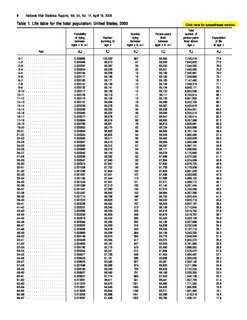
Actuarial science is the discipline that applies mathematical and statistical methods to assess risk in insurance, finance, and other industries and professions. More generally, actuaries apply rigorous mathematics to model matters of uncertainty.

A tontine is an investment plan for raising capital, devised in the 17th century and relatively widespread in the 18th and 19th centuries.

Life insurance is a contract between an insurance policy holder and an insurer or assurer, where the insurer promises to pay a designated beneficiary a sum of money upon the death of an insured person. Depending on the contract, other events such as terminal illness or critical illness can also trigger payment. The policy holder typically pays a premium, either regularly or as one lump sum. The benefits may include other expenses, such as funeral expenses.
The Equitable Life Assurance Society, founded in 1762, is a life insurance company in the United Kingdom. The world's oldest mutual insurer, it pioneered age-based premiums based on mortality rate, laying "the framework for scientific insurance practice and development" and "the basis of modern life assurance upon which all life assurance schemes were subsequently based". After closing to new business in 2000, parts of the business were sold off and the remainder of the company became a subsidiary of Utmost Life and Pensions in January 2020.

Prudential Financial, Inc. is an American Fortune Global 500 and Fortune 500 company whose subsidiaries provide insurance, investment management, and other financial products and services to both retail and institutional customers throughout the United States and in over 40 other countries.
Genworth Financial is an S&P 400 insurance company. The firm was founded as The Life Insurance Company of Virginia in 1871. In 1986, Life of Virginia was acquired by Combined Insurance, which became Aon plc in 1987. In 1996, Life of Virginia was sold to GE Capital. In May 2004, Genworth Financial was formed out of various insurance businesses of General Electric in the largest IPO of that year. Genworth Financial is incorporated in Virginia.

Henry Baldwin Hyde was an American businessman. He is notable for having founded The Equitable Life Assurance Society of the United States in 1859. By the time of Hyde's death, The Equitable was the largest life insurance company in the world.
The Massachusetts Mutual Life Insurance Company, also known as MassMutual, is a Springfield, Massachusetts-based life insurance company.

George Dexter Robinson was an American lawyer and Republican politician from Chicopee, Massachusetts. After serving in the Massachusetts General Court and United States House of Representatives, Robinson served three one-year terms as Governor of Massachusetts, notably defeating Benjamin Franklin Butler in the 1883 election.

Insurance Company of North America (INA) is the oldest stock insurance company in the United States, founded in Philadelphia in 1792. It was one of the largest American insurance companies of the 19th and 20th centuries before merging with Connecticut General Life to form CIGNA in 1982, and was acquired by global insurer ACE Limited in 1999.

Thomas Coman was President of the New York City Board of Aldermen from 1868 to 1871, and Acting Mayor of New York for several weeks at the end of 1868 and beginning of 1869.
Equitable Holdings, Inc. is an American financial services and insurance company that was founded in 1859 by Henry Baldwin Hyde. In 1991, French insurance firm AXA acquired majority control of The Equitable.

The Equitable Life Assurance Building, also known as the Equitable Life Building, was the headquarters of the Equitable Life Assurance Society of the United States, at 120 Broadway in Manhattan, New York. Arthur Gilman and Edward H. Kendall designed the building, with George B. Post as a consulting engineer. The Equitable Life Building was made of brick, granite, and iron, and was originally built with seven above-ground stories and two basement levels, with a height of at least 130 feet (40 m). An expansion in 1885 brought the total height to 155 feet (47 m) and nine stories.
The New York State Insurance Department (NYSID) was the state agency responsible for supervising and regulating all insurance business in New York State. It was regarded in the industry as one of the most state-of-the-art insurance regulatory agencies.

James Hazen Hyde was the son of Henry Baldwin Hyde, the founder of The Equitable Life Assurance Society of the United States. James Hazen Hyde was twenty-three in 1899 when he inherited the majority shares in the billion-dollar Equitable Life Assurance Society. Five years later, at the pinnacle of social and financial success, efforts to remove him from The Equitable set in motion the first great Wall Street scandal of the 20th century, which resulted in his resignation from The Equitable and relocation to France.

Amicable Society for a Perpetual Assurance Office is considered the first life insurance company in the world.

The Insurance Regulatory and Development Authority of India (IRDAI) is a regulatory body under the jurisdiction of Ministry of Finance, Government of India and is tasked with regulating and licensing the insurance and re-insurance industries in India. It was constituted by the Insurance Regulatory and Development Authority Act, 1999, an Act of Parliament passed by the Government of India. The agency's headquarters are in Hyderabad, Telangana, where it moved from Delhi in 2001.
William Joseph Graham was an American insurance executive, who was Vice President of The Equitable Life Assurance Society of the United States. He is known as "father of group insurance," and as past-president of the American Management Association.

The International Life Assurance Society was a 19th-century British insurance company. Its operations in the United States, particularly in the state of Massachusetts, caused it to play a major role in the development of insurance regulation in that country.
John Augustine McCall was an American insurance executive from New York.













